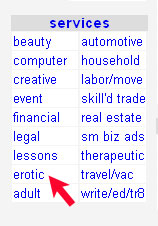Sure, a case can be made for Google doing evil, but, hell, they are smart (in an evil way??).
Today, at the Google I|O conference, the company announced Web Elements. Web widgets, let’s say, but don’t require a Google key, API access and so on.
Brilliant.
I embedded search on my site in about 15 seconds (took way longer to republish my site via Blogger…a Google property…when is Google going to update same???).
Awesome. Search now in the rail. For my site only. Wow. This type of “widget” is going to be embedded everywhere, which benefits Google, as well as “everywhere.”
The other (to me) killer Element (beyond search) plays off Google Maps – embed a fully functional Google Map with a few lines of code.
When I went to Maine last year, I blogged about same after the fact, and included a (Google static) map of Maine. I.e. that I screen-shotted off Google Maps, re-sized in Photoshop blah blah. Here’s the result.
The fully functional Google Map of the same area is the graphic in this entry. Your choice…
Image the possibilities….
I’m sorry, but I just added – with about 30 seconds worth of work – full site search and Google Map integration for a particular site.
This is a game-changer. Honest.
The Google Maps have some limitations, but they’ll evolve.
Trust me. Game Changer.
Updates
- Map embed works in Firefox; issues with IE(7). Cache? I think it’s a Google issue (double-click on Maine icon, go to Brazil or Netherlands. WTF?)
- Long story short, I had the wrong doctype in the file. And a Google Engineer worked with me to get it fixed. That said, I’m still leery of using the Web Elements – I have to be on a page with the correct DOCTYPE, or it won’t work in (currently) the most popular browser out there. Works in all the others (Mac/Windoze), including IE6 on Windoze. While the DOCTYPE fix did fix the issue…seems like an implementation issue, so I’m guessing I won’t be using the Map Web Element. Too bad; I really liked this tool….

 I’ve said this a zillion times to many, but computers or cars are great…until they break. Then it’s (often) hell. I.e. a pain in the ass to fix.
I’ve said this a zillion times to many, but computers or cars are great…until they break. Then it’s (often) hell. I.e. a pain in the ass to fix.